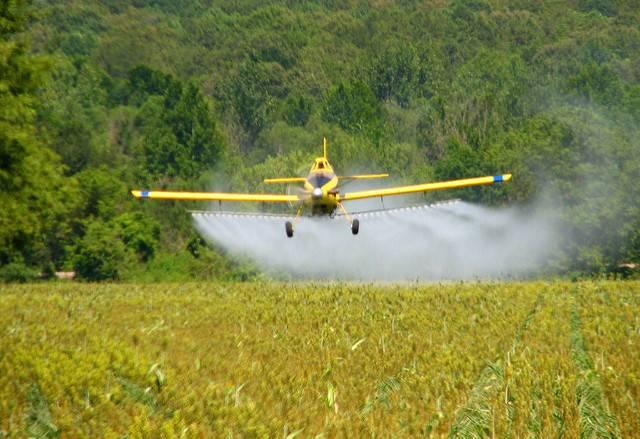
Yesterday, U.S. Senator Tom Udall of New Mexico introduced a bill that would ban chlorpyrifos, a pesticide some research says can be linked to learning disabilities as well as severe health problems. Earlier this year, the Environmental Protection Agency (EPA) denied a petition urging a ban all forms of chlorpyrifos. The decision by EPA head Scott Pruitt was harshly criticized by several environmental groups, which said the agency's own research found considerable risk to public health. Shortly after Pruitt's ruling, Udall sent a letter to the EPA administrator demanding answers for the reversal.
Some scientists, and the U.S. Department of Agriculture (USDA), say that fears over chlorpyrifos are overstated and are safe at low levels of exposure. And Dow Agrosciences, a leading manufacturer of chlorpyrifos-based products, insists that the science has rigorously proven that the chemical is not dangerous when farmers apply and manage the chemical safely. The chemical has been banned from residential use since 2001, but is still widely used in agriculture. In California chlorpyrifos is reportedly widely used for four crops: alfalfa, almonds, citrus and cotton.
"This is the right decision for farmers who, in about 100 countries, rely on the effectiveness of chlorpyrifos to protect more than 50 crops," said Dow in a public statement shortly after Pruitt announced the chemical would not be banned.
But NGOs including the Natural Resources Defense Council (NRDC) insist that with over 3,000 studies concluding that chlorpyrifos exposure at any level is unsafe, evidence that the chemical has appeared in some sources of drinking water behooves the EPA to ban the product. NRDC has quickly lined itself up in support of Udall's bill.
“This bill tells the chemical industry that our children’s health and safety are not for sale. Families shouldn’t have to worry the fruits and veggies they feed their kids could do them harm," said NRDC's president, Rhea Suh, in an emailed statement to TriplePundit. "Farmworkers shouldn’t have to fear that they might be exposed to toxic pesticides in the fields or that their children or will be poisoned if it drifts into in their communities. Our leaders in Washington must stop playing politics with children’s health.”
Image credit: Roger Smith/Flickr

Leon Kaye has written for 3p since 2010 and become executive editor in 2018. His previous work includes writing for the Guardian as well as other online and print publications. In addition, he's worked in sales executive roles within technology and financial research companies, as well as for a public relations firm, for which he consulted with one of the globe’s leading sustainability initiatives. Currently living in Central California, he’s traveled to 70-plus countries and has lived and worked in South Korea, the United Arab Emirates and Uruguay.
Leon’s an alum of Fresno State, the University of Maryland, Baltimore County and the University of Southern California's Marshall Business School. He enjoys traveling abroad as well as exploring California’s Central Coast and the Sierra Nevadas.














